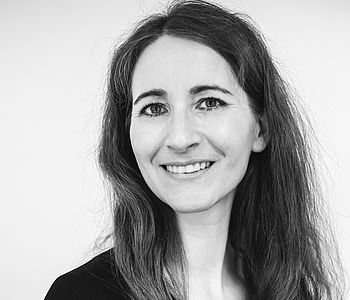PD Dr. Patricia Hertel | Forscherin

Mutterinstitut
:
Centre Marc Bloch
|
Position
:
Wissenschaftliche Mitarbeiterin
|
Fachbereich
:
Geschichte
|
Biographie
Patricia Hertel ist wissenschaftliche Mitarbeiterin im Forschungsschwerpunkt "Dynamiken und Erfahrungen der Globalisierung" und Privatdozentin an der Universität Basel.
Als Historikerin für die Geschichte Europas des 19. und 20. Jahrhunderts liegen ihre Forschungsschwerpunkte in der transnationalen Geschichte und in der Kulturgeschichte. Ihre zweite Monographie (erscheint bei De Gruyter) analysiert Tourismus in die westeuropäischen Diktaturen. Derzeit forscht sie zur Geschichte beruflicher Reisen im Zeitalter des Fliegens.
Nach einer Ausbildung zur Verlagskauffrau in der Oldenbourg-Verlagsgruppe absolvierte sie ein Studium der Germanistik, Geschichte und Portugiesischen Philologie an der Ludwig-Maximilians-Universität München. Parallel zum Studium machte sie eine Ausbildung zur Journalistin am Institut zur Förderung publizistischen Nachwuchses (ifp) und war als freie Journalistin für Print und Hörfunk (u. a. Bayerischer Rundfunk, Frankfurter Allgemeine Zeitung, Bischöfliche Aktion Adveniat) tätig.
Sie promovierte im Rahmen einer Diplomassistenz am Departement Historische Wissenschaften-Zeitgeschichte der Universität Freiburg (Schweiz) mit der Dissertation: Der erinnerte Halbmond: Islam und Nationalismus auf der Iberischen Halbinsel im 19. und 20. Jahrhundert. Im Anschluss arbeitete sie als Postdoc-Assistentin am Departement Geschichte der Universität Basel. Als Advanced.Postdoc.Mobility-Stipendiatin des Schweizerischen Nationalfonds (SNF) war sie Gastwissenschaftlerin am King's College London, am Deutschen Historischen Institut London, an der Universidad Complutense in Madrid und der Universitat de València. In letzten zehn Jahren nahm sie nahm zahlreiche Lehraufträge zur Europäischen Geschichte des 19. und 20. Jahrhunderts sowie zum wissenschaftlichen Schreiben an den Universitäten St. Gallen, Basel, Luzern und Freiburg/Schweiz wahr. Im akademischen Jahr 2023/24 lehrte sie als Gast-/Vertretungsprofessorin für Globalgeschichte an der FU Berlin.
Forschungsthema
Forschungsschwerpunkte:
Europäische Geschichte des 19. und 20. Jahrhunderts, insbesondere:
- Tourismus, Reisen, Mobilität
- Kulturgeschichte der Infrastruktur
- Internationale Beziehungen
- Diktaturen und Autoritarismus
- Historische Raumvorstellungen
- Erinnerung und Gedächtnis
- Nationalismus
Air Travel and the Transformation of the Modern Business World, 1920s–1990s
Die technische Möglichkeit des Fliegens veränderte die Art und Weise internationaler Geschäftsbeziehungen. Die Fähigkeit, lange Strecken in kürzerer Zeit zurückzulegen veränderte die Arbeitsabläufe in Produktion und Werbung internationaler Unternehmen ebenso wie die Häufigkeit, die Orte und die Länge von beruflichen Treffen und Geschäftsreisen. Gleichzeitig brachte das Fliegen neue Geschäftsmodelle hervor, und es entstanden Firmen, deren Existenz von Flugreisen abhing. Insgesamt wurde die moderne Geschäftswelt zunehmend abhängiger von Flugreisen, und ihr soziales Spektrum reichte vom Handelsvertreter mitteständischer Unternehmen hin zu einer kosmopolitischen Elite, die der Soziologe Richard Senett als «Davos Men» beschrieben hat. Diese Forschungsprojekt analysiert mit Methoden der Kulturgeschichte, wie Flugreisen in Verbindung mit modernen Kommunikationstechnologien internationale Geschäftsbeziehungen und Geschäftswelten veränderte. Berufliche bedingte Flugreisen waren, so die These des Projekts, ein relevanter Faktor für die Entstehung und die Sichtbarkeit einer neuen Mittel- und Oberschicht in Europa und der Welt; sie schufen Dynamiken der Vernetzung ebenso wie der Marginalisierung bestimmter sozialer Gruppen. Die Analyse von Praktiken und Konventionen rund um geschäftliche Flugreisen dienen als Perspektive auf den Wandel der Geschäftswelt durch internationale und globale Mobilität im 20. Jahrhundert.
Beach diplomacy: international networks and the promotion of Benidorm in Francoist Spain during the 1950s and 1960s
22.April 2025Patricia Hertel
Facilitating and promoting tourism in Spain during the post-war decades was an international endeavour. For Spanish and European businesspeople, tourism in Spain provided an economic win–win situation. Beyond that, those tourism promoters who were sympathetic with the Franco regime considered it an occasion to improve Spain’s international reputation. Using the promotion of Benidorm and the ‘Costa Blanca’ in the 1950s and 1960s as a case study, this article analyses the networks and negotiations among local politicians, international tour operators and airlines, as well as prominent tourists. This ‘beach diplomacy’ fostered tourism in Spain as a modern consumer product that was compatible with different economic and ideological interests, as well as transcended the political divisions between democracies and dictatorships in the geopolitical ‘West’.
https://doi.org/10.1080/13507486.2024.2442616
Free Movement in Postwar Europe: Exploring a Multivalent Concept. Introduction
17.Januar 2025Patricia Hertel
Journal of Modern European History, Volume 23 Issue 1
Collection: Journal of Modern European History, Volume 23 Issue 1
The progressive elevation of ideologies and discourses of free movement constitutes a vital narrative of modern European history. This introduction offers a brief genealogy of free movement in European thought and politics in modern liberalism since the late eighteenth century and outlines the actors, spaces and conflicts of free movement in postwar Europe. Furthermore, it offers a discussion of the place of free movement in recent historiography.
https://doi.org/10.1177/16118944241307766